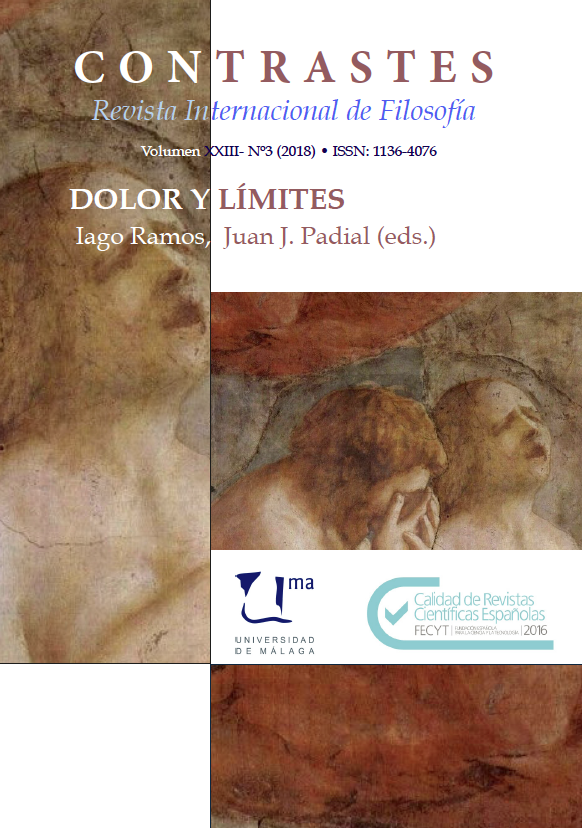Individuality and Mortality in the Philosophy of Portrait-Painting: Simmel, Rousseau, and Melanie Klein
DOI:
https://doi.org/10.24310/Contrastescontrastes.v23i3.6592Keywords:
PORTRAITURE, AESTHETICS, PSYCHOANALYSIS, RECOGNITION, INDIVIDUALITY, MORTALITY, GEORG SIMMEL, JEAN-JACQUES ROUSSEAU, MELANIE KLEINAbstract
This paper explores some connections between depictions of mortality in portrait-painting and philosophical (and psychoanalytic) treatments of our need to be recognized by others. I begin by examining the connection that Georg Simmel makes in his philosophical study of Rembrandt between that artist’s capacity for depicting his portrait subjects as non-repeatable individuals and his depicting them as mortal, or such as to die. After noting that none of Simmel’s explanations of the tragic character of Rembrandt’s portrait subjects seems fully satisfactory, I then turn to Rousseau’s writing on our need for the recognition of others in order to argue that (1) it is at least as sources for the satisfaction of this need that other persons figure for us as irreplaceable (in a way that contrasts with the kinds of satisfaction that intersubstitutable things afford us); and that (2) it is exactly this kind of irreplaceability that Simmel is gesturing at in connecting the concepts of individuality and mortality in his writing on Rembrandt’s portraits. For the remainder of the paper I argue that the foregoing ideas are in fact central to the psychoanalytic writing of Melanie Klein, and in particular (a) Klein’s understanding the infant’s apprehension of other persons as internally related to their anxieties about the possibility of those persons’ irretrievable loss; (b) her understanding that it is as sources of recognitionthat others’ personhood is made salient to us; and (c) her treatment of portrait-painting as an activity for working through those aforementioned anxieties.Downloads
Metrics
Publication Facts
Reviewer profiles N/A
Author statements
Indexed in
-
—
- Academic society
- N/A
- Publisher
- Universidad de Málaga
Downloads
Published
How to Cite
Issue
Section
License
This journal provides immediate free access to its content under the principle of making research freely available to the public. All content published in Contrastes. Revista Internacional de Filosofía, are subject to the Creative Commons Attribution-NonCommercial-ShareAlike 4.0 license whose full text can be found at <http://creativecommons.org/licenses/by-nc-sa/4.0>
It is the responsibility of the authors to obtain the necessary permissions of the images that are subject to copyright.
Authors whose contributions are accepted for publication in this journal will retain the non-exclusive right to use their contributions for academic, research and educational purposes, including self-archiving or repository in open access repositories of any kind.
The electronic edition of this magazine is edited by the Editorial Service of the University of Malaga (Uma Editorial), being necessary to cite the origin in any partial or total reproduction.










5.png)
